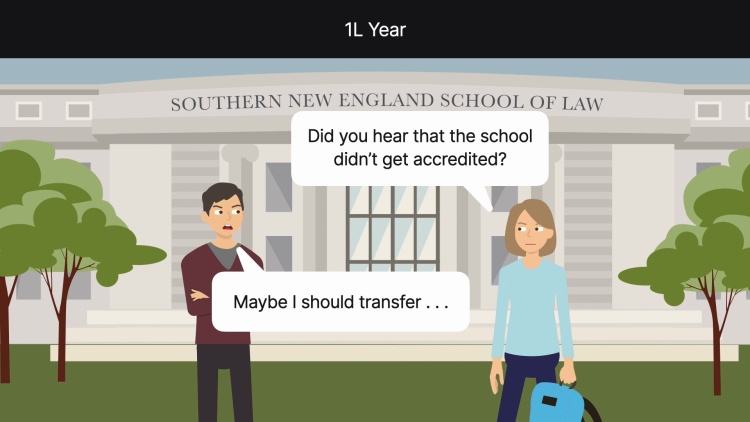Rodi v. Southern New England School of Law
United States Court of Appeals for the First Circuit
389 F.3d 5 (2004)

- Written by Josh Lee, JD
Facts
Joseph Rodi (plaintiff) received a recruitment letter from the Southern New England School of Law (SNESL) (defendant) stating that SNESL was highly confident the school would receive accreditation from the American Bar Association (ABA). The letter also stated that the future of the school had never been brighter. Rodi enrolled at SNESL and received a catalogue from the school. The catalogue contained a statement that SNESL was not representing that the school would be accredited by the ABA prior to the graduation of any student. During Rodi’s first year, the ABA denied SNESL’s application for accreditation. Rodi considered transferring to another law school, but the acting dean wrote a letter to Rodi, stating that SNESL was improving the areas found to be deficient by the ABA and that there was no cause for pessimism. Rodi remained at SNESL, but the ABA denied SNESL’s renewed application for accreditation during Rodi’s third year of law school. As a result, Rodi was not permitted to take the New Jersey bar exam. Rodi sued SNESL for fraudulent misrepresentation. Rodi alleged SNESL knew that the ABA was highly critical of SNESL and that accreditation was very unlikely. SNESL moved to dismiss the lawsuit. The district court granted the motion to dismiss, and Rodi appealed to the United States Court of Appeals for the First Circuit.
Rule of Law
Issue
Holding and Reasoning (Selya, J.)
What to do next…
Here's why 911,000 law students have relied on our case briefs:
- Written by law professors and practitioners, not other law students. 47,100 briefs, keyed to 997 casebooks. Top-notch customer support.
- The right amount of information, includes the facts, issues, rule of law, holding and reasoning, and any concurrences and dissents.
- Access in your classes, works on your mobile and tablet. Massive library of related video lessons and high quality multiple-choice questions.
- Easy to use, uniform format for every case brief. Written in plain English, not in legalese. Our briefs summarize and simplify; they don’t just repeat the court’s language.





